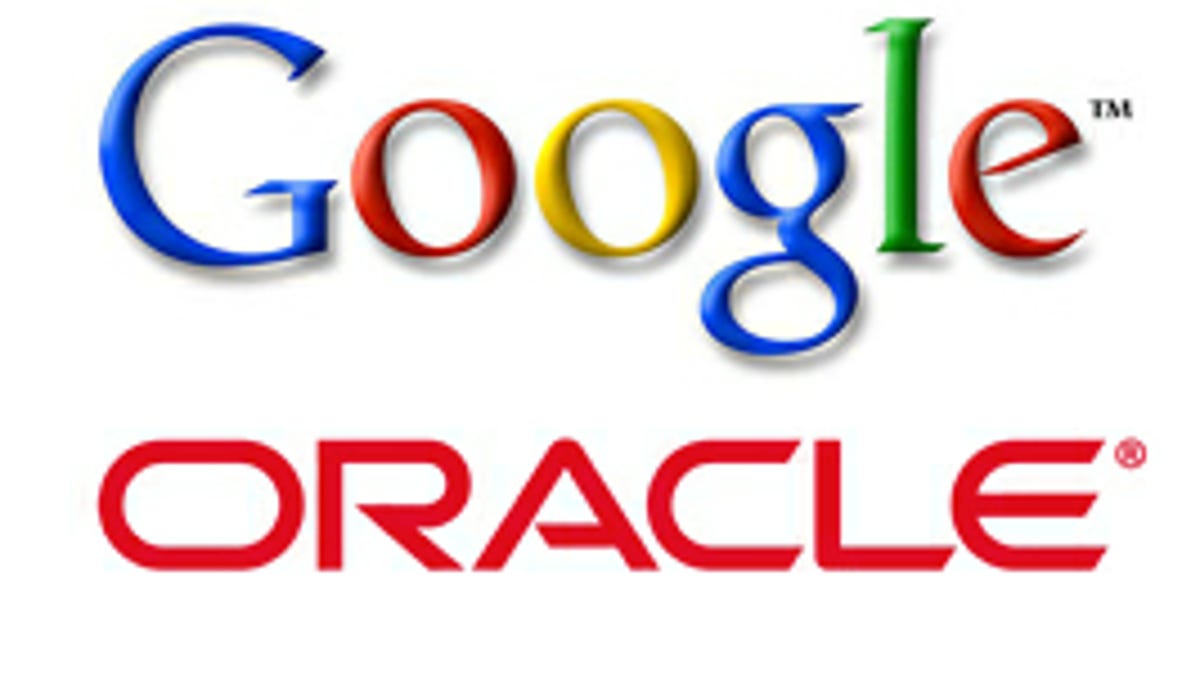Oracle-Google jury stymied by more technical questions
Jury in Oracle's patent infringement lawsuit against Google apparently remain flummoxed by arcane aspects of the technology.

SAN FRANCISCO -- Nearly a week into deliberations in the patent phase of the Oracle v. Google lawsuit, the 10-person jury seems to be mired in technical aspects of the patent dispute, prompting a mild complaint directed at the lawyers from an obviously exasperated judge today.
After drumming up his best answer to the latest of a series of jury questions this week, Judge William Alsup of the U.S. District Court of Northern California seemed to lose patience with the proceedings. "That's the best I can do. This is not easy for me. It's not easy for you," the judge told the jury.
Acknowledging the jurors' confusion, Oracle lawyer Michael Jacobs said, "I fear the jury may be turning into patent drafters."
The judge did not exactly lend a sympathetic ear. "Once again, the lawyers were zero help," he said. "You just don't agree on anything, so I have to figure it out on my own."
Jacobs suggested that it would be helpful if the attorneys explained to the jury exactly what data is being referenced in the court instructions. "I gave you the chance, and you spurned it, to have a supplemental argument," the judge responded. "You thought it was to your advantage to just go with the flow."
The lawyer for Oracle said he would be willing to have another go at summing up his most salient points to the jury now, but Google attorney Matthias Kamber said Google lawyers did not want to do that.
One of the key issues in the case is whether or not Android's Dalvik Virtual Machine simulates code execution the same way that the Java Virtual Machine does. Oracle claims Google knowingly infringed on a patent that covered the technology (the '104 patent, for those of you keeping score). Google argues that Dalvik involves "pattern matching" that is not the same thing as simulation.
Oracle sued Google in 2010, claiming that Android infringed upon a Java patent it acquired when it bought Sun Microsystems. Google claims the Android team was not aware of Sun's patents before the lawsuit was filed in July 2010, that Sun was a big supporter of Android and that Java was free to use.
Today the jury asked the court: "For purposes of Patent 104, do the claims cover a symbolic resolution anywhere in the data fields?"The judge told the jury that the answer is 'no,' a very minor victory for Google. "In order to find infringement on any claim all limitations in that claim must be met," the judge said. "If you read the limitations do you find any such requirement as to where the resolution occurs? No. The claims do not specify any place that the resolution has to occur. So that's your answer to that question."
Google's attorney had argued that the term "resolution" is not in the patent claim directly and that "the literal claim language has to be met in order for there to be infringement." Oracle's lawyer however, disagreed. "There is no restriction on where symbolic resolution takes place," he told the judge.
Later the jury had another question related to the same technology area: "In the symbolic reference definition, if we find a reference that identifies data by a numeric memory location of the data does the existence of an initial numeric reference preclude the existence of a symbolic reference?" A symbolic reference has been defined by the court as a reference in the code that identifies the data by a name other than the numeric memory location for the data.
An instruction set can have numeric references and symbolic references throughout, but in each instance the reference is one or the other, never both, the judge said. "If you find one numeric reference does that preclude the possibility of a symbolic reference later on in the instructions? No it doesn't," he said. "But it does preclude it for that one instance."
Jacobs had argued for Oracle's side that there was no requirement that a reference be only or exclusively one type of reference or another. But Google attorney Kamber argued that a reference can not be both numerical and symbolic. "It doesn't get transmogrified into something else on account of whatever else happens downstream," he said. "That would be inconsistent with the court's instructions last week."
The jury had asked several technical questions yesterday too, including whether the resolution of symbolic references in Patent 104 need to happen immediately? The answer to that one also was not so simple, as Rachel King of CNET sister site ZDNet reported.
Barring a verdict, deliberations will run until 1 p.m. today and tomorrow and then resume next Tuesday morning after the Memorial Day holiday. "Until they tell me that they're deadlocked, my plan is to let them go as long as they like," the judge said during a conference with lawyers. The case is on track and could finish before the original anticipated ending of middle of June, he said.

